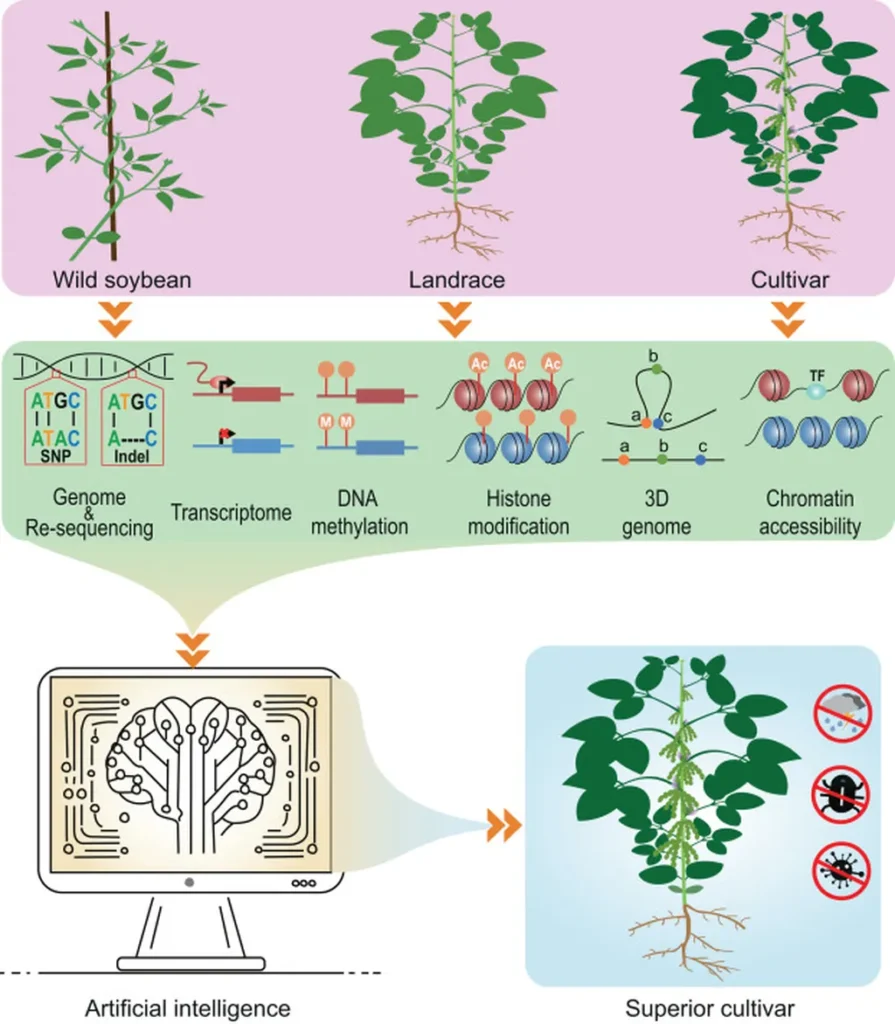In the heart of China’s agricultural landscape, a groundbreaking discovery is set to ripple through the soybean industry, offering a promising path to enhance yield and improve the dual-purpose crop’s role in food and oil production. Researchers, led by Xia Li from the Key Laboratory of Molecular Cytogenetics and Genetic Breeding of Heilongjiang Province at Harbin Normal University, have unlocked the potential of the GmCKX3 gene, paving the way for innovative molecular breeding strategies.
Soybean, a staple crop in China, is not just a dietary cornerstone but also a vital source of oil. The size and weight of its seeds are pivotal agronomic traits that directly influence yield. Enter cytokinin oxidases/dehydrogenases (CKXs), enzymes that degrade specific isoforms of endogenous cytokinins (CKs), thereby regulating plant growth and seed development. However, their role in soybeans has remained largely unexplored—until now.
Li and her team identified GmCKX3 as a yield-related gene in a previous genome-wide association study of 250 soybean core germplasms. To delve deeper, they developed GmCKX3-deficient mutants using CRISPR/Cas9 gene editing in the soybean variety Williams82. Over three years, they conducted a thorough phenotypic analysis, revealing that the loss of GmCKX3 function significantly enhanced seed size and weight. This enhancement was attributed to increased cell size and fat accumulation in the endosperm, driven by elevated endogenous CK levels resulting from suppressed GmCKX3 expression.
“Our findings demonstrate that GmCKX3 plays a central role in seed-trait modulation,” Li explained. “By understanding and manipulating this gene, we can potentially improve soybean yield, which has profound implications for both the food and energy sectors.”
Subcellular localization studies revealed that GmCKX3 resides in the endoplasmic reticulum and predominantly degrades the isopentenyladenine (iP)-type CK. Integrated transcriptomic and metabolomic analyses further uncovered key genes and pathways involved in CK regulation, supporting GmCKX3‘s pivotal role in seed development.
The implications of this research are far-reaching. For the energy sector, soybeans are a crucial source of biodiesel. Enhancing seed size and weight can lead to increased oil content, making soybean cultivation more efficient and economically viable. For the food industry, larger seeds mean higher yields, addressing food security concerns and meeting the growing demand for soy-based products.
“This research not only advances our understanding of cytokinin-mediated seed development but also offers promising targets for molecular breeding aimed at improving soybean yield,” Li added. The study, published in the journal ‘Plants’ (translated from Chinese as ‘植物’), marks a significant step forward in agricultural biotechnology, with the potential to reshape the future of soybean production and beyond.
As the world grapples with the challenges of climate change and food security, innovations like this offer a beacon of hope. By harnessing the power of genetic editing, researchers are unlocking the secrets of plant biology, one gene at a time. The journey towards sustainable agriculture is fraught with complexities, but with each discovery, we edge closer to a future where food and fuel are abundant, and the planet is healthier for it.

